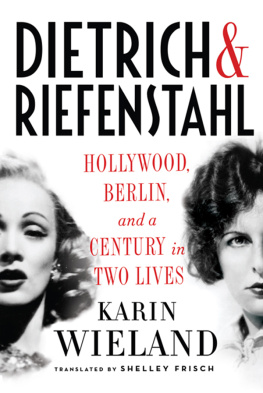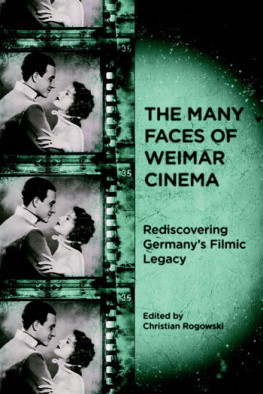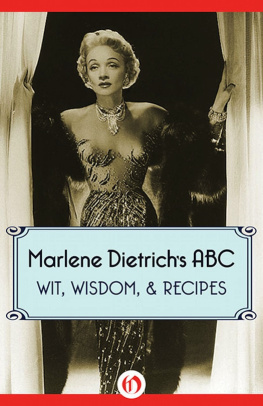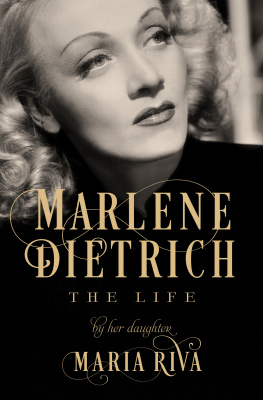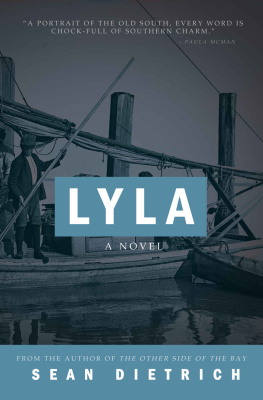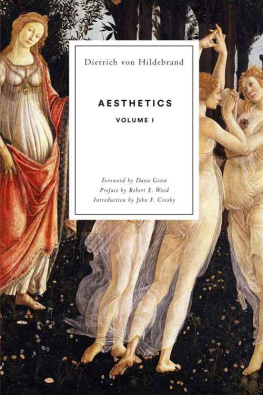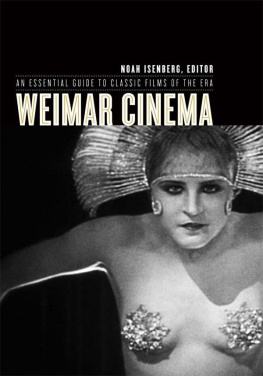
Film Europa: German Cinema in an International ContextSeries Editors:Hans-Michael Bock (CineGraph Hamburg); Tim Bergfelder (University of Southampton); Sabine Hake (University of Texas, Austin)
German cinema is normally seen as a distinct form, but this new series emphasizes connections, influences, and exchanges of German cinema across national borders, as well as its links with other media and art forms. Individual titles present traditional historical research (archival work, industry studies) as well as new critical approaches in film and media studies (theories of the transnational), with a special emphasis on the continuities associated with popular traditions and local perspectives.
The Concise Cinegraph: An Encyclopedia of German Cinema
General Editor: Hans-Michael Bock
Associate Editor: Tim Bergfelder
International Adventures: German Popular Cinema and European Co-Productions in the 1960s
Tim Bergfelder
Between Two Worlds: The Jewish Presence in German and Australian Film, 19101933
S.S. Prawer
Framing the Fifties: Cinema in a Divided Germany
Edited by John Davidson and Sabine Hake
A Foreign Affair: Billy Wilder's American Films
Gerd Gemnden
Destination London: German-speaking Emigrs and British Cinema, 19251950
Edited by Tim Bergfelder and Christian Cargnelli
Michael Haneke's Cinema: The Ethic of the Image
Catherine Wheatley
Willing Seduction: The Blue Angel, Marlene Dietrich, and Mass Culture
Barbara Kosta
WILLING SEDUCTION
The Blue Angel, Marlene Dietrich, and Mass Culture
Barbara Kosta
Published in 2009 by
Berghahn Books
www.berghahnbooks.com
2009, 2012 Barbara Kosta
First ebook edition published in 2011
First paperback edition published in 2012
All rights reserved. Except for the quotation of short passages for the purposes of criticism and review, no part of this book may be reproduced in any form or by any means, electronic or mechanical, including photocopying, recording, or any information storage and retrieval system now known or to be invented, without written permission of the publisher.
Library of Congress Cataloging-in-Publication Data
Kosta, Barbara.
/ Barbara Kosta.
p. cm. -- (Film Europa ; v. 8)
Includes bibliographical references and index.
ISBN 978-1-84545-572-9 (hbk.) -- ISBN 978-0-85745-619-9 (pbk.) -- ISBN 978-1-84545-914-7 (ebk.)
1. Blaue Engel (Motion picture) 2. Dietrich, Marlene--Criticism and interpretation. 3. Motion pictures--Germany--History--20th century. 4. Culture in motion pictures. 5. Women in motion pictures. I. Title.
PN1997.B6713K67 2009
791.43'72--dc22
2009006160
British Library Cataloguing in Publication Data
A catalogue record for this book is available from the British Library
ISBN 978-1-84545-572-9 hardback
ISBN 978-0-85745-619-9 paperback
ISBN 978-1-84545-914-7 ebook
To Mohsen and Maya
LIST OF ILLUSTRATIONS
0.1 Marlene Dietrich and Josef von Sternberg, 1930. Source: Deutsche KinemathekMarlene Dietrich Collection Berlin.
.
ACKNOWLEDGMENTS
As with any book that has been long in the making, the project is larger than its single author. It is the result of an extended dialog with friends, colleagues and students over the years and in many different settings. Also, many institutions provided support in various ways. My thanks to the Department of German Studies and College of Humanities at University of Arizona for providing financial support. Without the help of the Fulbright Scholar Program whose generous support made possible my research stay in Berlin, the book may not have been written. While I was in Berlin, the stars were in alignment. I discovered by chance that I was living around the corner from Heinrich Mann's house and down the street from where Marlene Dietrich used to live.
So many friends, colleagues and students have contributed to this book both directly and indirectly that it is impossible to thank them all by name. My thanks go to my graduate students at the University of Arizona who participated in my Marlene Dietrich seminar. I am especially indebted to Caryl Flinn, Beverly Haviland, Helga Kraft, Elke Liebs, Hermann Rebel, and Thomas Kovach for reading earlier parts of the manuscript and offering their valuable feedback and advice. I would like to thank Steven Martinson for our lengthy discussions on the Bildungsbrgertum and to Hermann Rebel who provided the inspiration for the title and lively conversations on the history of the Weimar Republic. I am grateful to Mary Beth Haralovich, Sabine Hake, Anton Kaes, Richard McCormick and Inge Stephan, who supported my project and who provided comments on research proposals and presentations that enriched the manuscript.
My special thanks to Silke Ronneburg and Werner Sudendorf at the Marlene Dietrich Collection in Berlin and the Deutsche Kinemathek. The wealth of material on Marlene Dietrich, which they curate, not to mention the inventory Dietrich left behind made for easier access to Dietrich's Berlin phase. Moreover, the newsletter and exhibits, that they organize, create a community among Dietrich fans and allows us to indulge in the details of her stardom. I also want to express my appreciation to Robert Mnkel at the Friedrich-Wilhelm-Murnau-Stiftung who supplied high quality images from The Blue Angel and to the staff at the Deutsches Filmmuseum.
I especially thank my family and friends who were there behind the scenes. I owe my gratitude to my parents Konstantin and Barbara Kosta, to Lilian Crato, Susan Mallet, Eric Britten and Eileen Foley. I especially thank Mohsen Haddad-Kaveh for his humor and loving patience, and our daughter Maya who always will remember our pilgrimage to Dietrich's grave.
I would like to extend my thanks to Marion Berghahn, Sabine Hake, Tim Bergfelder and Mark Stanton for their support of my project and to Berghahn's anonymous readers whose perceptive comments improved the manuscript.
My friend, Janis Falco, reminded me that my fascination with Dietrich and The Blue Angel began while I was an undergraduate. Thanks to Marlene, it continues even after this project.
Figure 0.1 Marlene Dietrich and Josef von Sternberg, 1930. Source: Deutsche KinemathekMarlene Dietrich Collection Berlin.
INTRODUCTION
History tells us that the artist is judged rarely by a jury composed
of his equals; more often judgment is given by a self-appointed jury
of unqualified arbiters of taste.
Josef von Sternberg, Fun in a Chinese Laundry
Dietrich: In the German language: the name for a key that opens
all locks. Not a magic key. A very real object, necessitating great skill
in the making.
Marlene Dietrich, Marlene Dietrich's ABC
Josef von Sternberg's 1930 film The Blue Angel (Der blaue Engel) is one of the best-known films to emerge from the Weimar Republic (191933)a landmark in German film history, internationally acclaimed.


